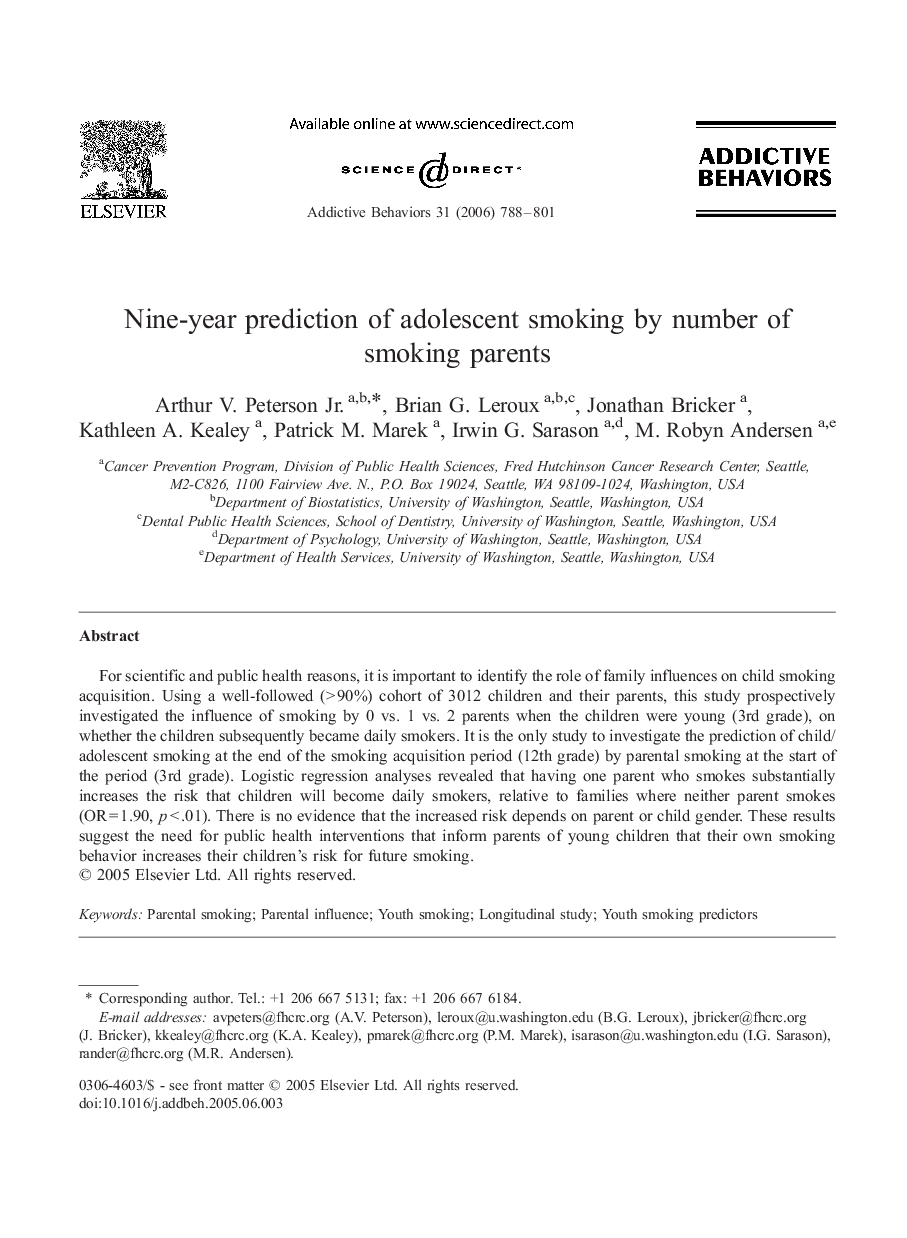| Article ID | Journal | Published Year | Pages | File Type |
|---|---|---|---|---|
| 900680 | Addictive Behaviors | 2006 | 14 Pages |
For scientific and public health reasons, it is important to identify the role of family influences on child smoking acquisition. Using a well-followed (> 90%) cohort of 3012 children and their parents, this study prospectively investigated the influence of smoking by 0 vs. 1 vs. 2 parents when the children were young (3rd grade), on whether the children subsequently became daily smokers. It is the only study to investigate the prediction of child/adolescent smoking at the end of the smoking acquisition period (12th grade) by parental smoking at the start of the period (3rd grade). Logistic regression analyses revealed that having one parent who smokes substantially increases the risk that children will become daily smokers, relative to families where neither parent smokes (OR = 1.90, p < .01). There is no evidence that the increased risk depends on parent or child gender. These results suggest the need for public health interventions that inform parents of young children that their own smoking behavior increases their children's risk for future smoking.
